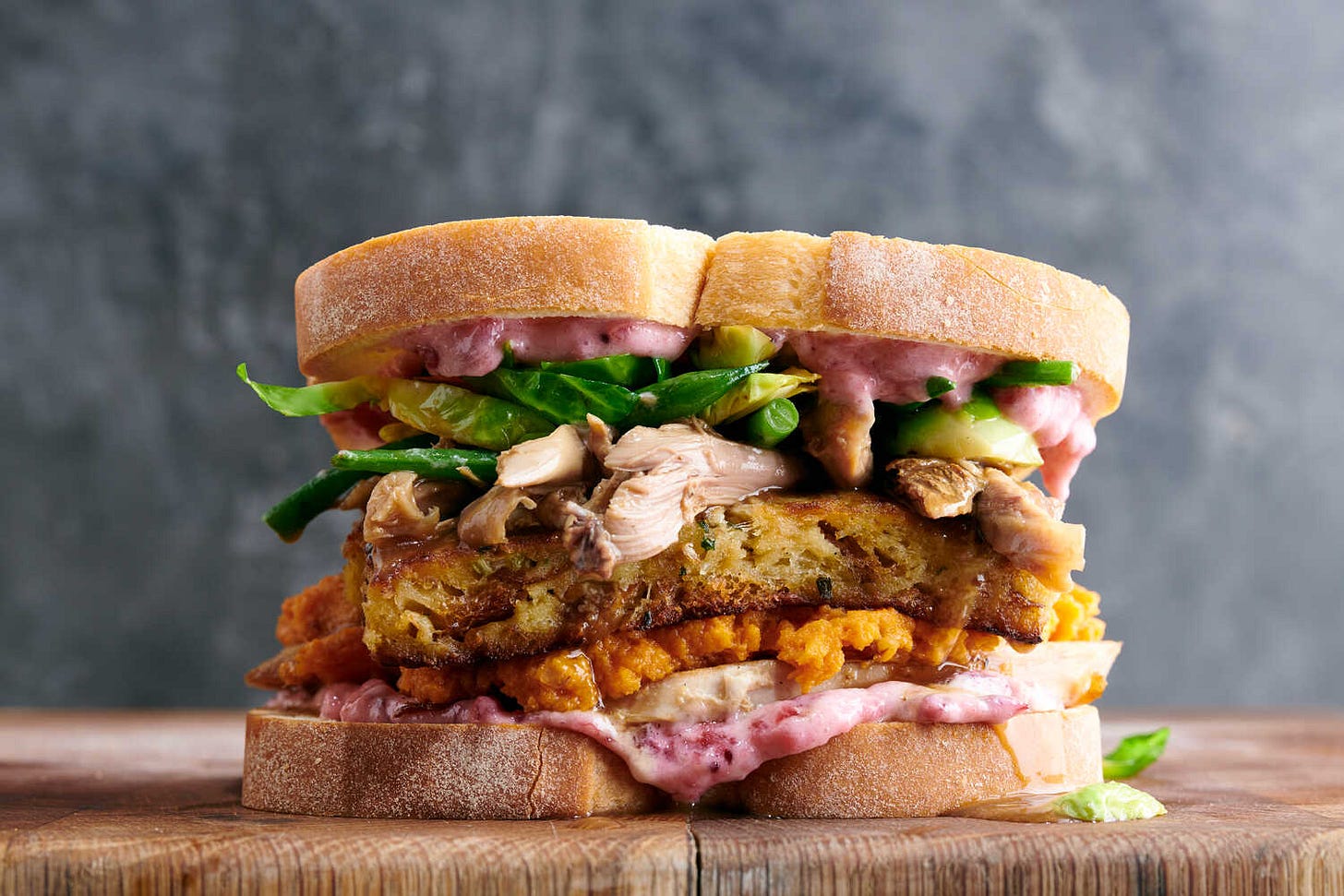Learning from Leftovers
Eat More Pie
For some, today is the greatest day of leftovers of the whole year. You can have your leftover Rosh Hashanah brisket or maybe even the leftover Pesach chicken soup, but Thanksgiving leftovers? There’s no equal.
Some swear by the famed turkey sandwich with the gravy on top. Others hold by the day-after-stuffing. If I could be so bold, might I suggest just eating more pie.
Leftovers don’t just have relevance when it comes to our food but also to sacrifices in the Temple. There are very clear rules about how much of each sacrifice can be left over and for how long. In the many details of Parshat Tzav, we learn the following about the Thanksgiving offering, the korban todah:
וּבְשַׂ֗ר זֶ֚בַח תּוֹדַ֣ת שְׁלָמָ֔יו בְּי֥וֹם קׇרְבָּנ֖וֹ יֵאָכֵ֑ל לֹֽא־יַנִּ֥יחַ מִמֶּ֖נּוּ עַד־בֹּֽקֶר׃
And the flesh of the thanksgiving sacrifice of well-being shall be eaten on the day that it is offered; none of it shall be set aside until morning.
When a person was saved from a life threatening situation: illness, travel, or being jailed, as a nod to their godly gratitude, they offered this sacrifice. With other sacrifices, one wouldn’t always have to eat it all, and even the remains of it could be left out for a period of time. So why is it that this particular sacrifice needs to all be eaten on the very same day it’s sacrificed?
Rav Avraham Mordechai Alter of Gur, the 4th Gerrer Rebbe known as the Imrei Emes shared the following answer:
The thanksgiving offering is brought for a miracle (which God has performed for the individual). Each and every day God performs new miracles for us. How can we eat and celebrate yesterday’s miracle, when we have to celebrate today’s miracle?
Playing on the idea that creation is renewed every day, he notes that miracles also occur to us on a daily basis. If we haven’t appreciated the day’s miracles, how can we expect to appreciate what is to come in the next batch?
We talk a lot in our culture about being present. Usually, that relates to relationships with our friends, family, and even work. The more present we are, the more we appreciate living.
But what about learning how to be present in the miracles of life? Not just the gigantic, tectonic shifts that are miraculous but even the little ones, like say gathering with a group of loved ones over a delicious meal, leaves falling from trees and then regrowing in the spring, or just waking up in the morning.
We are in the season of gratitude. Every year we speak about how increasing gratitude is good for one’s mental and physical health. As my good friend, Rabbi Jeremy Markiz points out, we practice gratitude because it’s something we have to work at.
The Imre Emes’ teaching illustrates something similar. We can practice awakening ourselves to the miracles happening around us. It creates a sense of awe and appreciation for the life that is happening around us. When we don’t pay attention and let them lie as “leftovers,” we lose out on what might come in the next day’s offerings.
In addition to your turkey sandwich hitting the spot today, my hope for all of us is that as we continue in this season of gratitude, we can open our eyes, hearts, and souls to the potential of the miraculous that lives around us daily. Don’t let it go to waste.
Shabbat Shalom, Happy Day After Thanksgiving, and Happy Weekend!


Beautiful! Gratitude is attitude, and feeling blessed is a choice. If one feels their cup is only half full, it is refillable. We need to appreciate more what we have, in the moment, because tomorrow isn’t promised.i am grateful you write, Rabbi Adir, and share your knowledge with us. You, and your sweet family, are blessings in my life. Shabbat Shalom and hugs and love. ✡️❤️ Zeta
A banger. I hope I can remember it and reteach it beshem omro